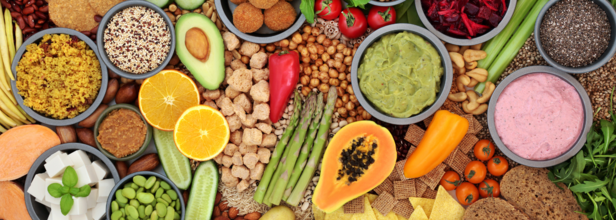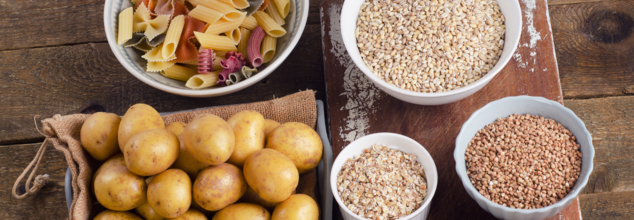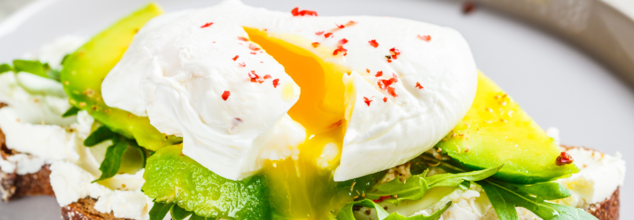
Credits: Canva
Can The Planetary Diet Support Longevity?
For the longest Mediterranean diet was considered to be the healthiest one. However, recently, there has been a better alternative that has gained the limelight. It is now shifted to the Planetary Health Diet.
What Is a Planetary Health Diet?
The term Planetary Health Diet was introduced by the EAT-Lancet Commission in their 2019 report titled "Food in the Anthropocene: the EAT-Lancet Commission on healthy diets from sustainable food systems".
This commission had 37 experts from 16 different countries. The commission collaborated with non-profit organization EAT and the medical journal The Lancet. The entire concept of the commission was to emphasize a dietary pattern, which is beneficial for both human health and environmental sustainability. It also advocates for an increased consumption of plant-based foods and reduced intake of animal-based products.
Recent studies too have shown that increased animal-based products may lead to health issues. As most of what is sold as meat is highly processed. Furthermore, the cases of E.coli is more persistent in meats.
The Lancet study stated: "It is estimated that a widespread shift to this diet form would reduce global dietary emissions by 17% and potentially prevent approximately 11 million deaths a year". Walter Willet, professor of epidemiology and nutrition, who also played a lead role in the study stated: "Climate change has our planet on track for ecological disaster- use of fossil fuels is the largest contributor, and out food system plays a major role."
ALSO READ: These 5 Popular Indian Breakfasts Are Slowing Down Your Health Goals
So, what does your food look like when you follow a planetary health diet?
Shorten as PHD, this diet focuses more on a plant-based diet, which comprises of vegetables, fruits, nuts, whole grains, plant proteins. The plant proteins mainly include beans, lentils, and pulses. It also contains unsaturated oils, modest amounts of dairy, and small quantities of meat and fish.
Is It Better Than The Other Diets?
As per the researchers of Harvard Chan Schools, people who follow the Planetary Health Diet (PHD) have a lower risk of every major cause of disease. These diseases also include cancer, heart diseases, and lung diseases.
A study published in The American Journal of Clinical Nutrition also notes that researchers used health data from more than 2000,000 individuals to find that participants were free from major diseases those who took up the PHD diet. The study followed these participants for 34 years.
"The study found that the risk of premature death was 30% lower in the top 10% participants most closely adhering to PHD compared to those in the lowest 10%. Every major cause of death, including cancer, heart disease, and lung disease, was lower with greater adherence to this dietary pattern," says the Harvard Chan School in its official statement.
As per a 2025 study published in the European Society of Cardiology, titled: Planetary health diet and Mediterranean diet associated with similar survival and sustainability benefits, the diet involved energy intake of around 2,500 kcal/day. The researchers also found that it helps with longevity and lowers all cause mortality.

Credit: Canva
Two Potassium-Rich Foods That Could Lower Blood Pressure Better Than Cutting Salt
People living with high blood pressure are often encouraged to limit their daily salt intake to under 6g. But new findings suggest that merely cutting back on sodium may not be enough. Experts now recommend increasing dietary potassium—commonly found in bananas and broccoli—as a more impactful way to manage blood pressure levels.
Researchers at the University of Waterloo in Canada have developed a mathematical model that emphasizes the importance of the balance between potassium and sodium in the diet. Their findings indicate that raising the ratio of potassium to sodium may be more effective for blood pressure control than focusing solely on reducing salt.
“Usually, when we have high blood pressure, we are advised to eat less salt,” explained Dr Anita Layton, a professor of applied mathematics, computer science, pharmacy, and biology at the university. “Our research suggests that adding more potassium-rich foods to your diet, such as bananas or broccoli, might have a greater positive impact on your blood pressure than just cutting sodium.”
Excess salt in the diet can lead the body to retain water, which adds pressure to blood vessel walls and may eventually cause damage to organs such as the kidneys. While reducing salt is beneficial, potassium offers a counteracting effect by helping the body expel sodium through urine and relax blood vessel walls.
Both potassium and sodium are electrolytes—substances essential for regulating bodily functions such as nerve signaling, muscle contractions, and fluid balance. The model created by the Waterloo team shows how increasing potassium can restore a more favorable electrolyte balance, supporting healthy blood pressure regulation.
Study leader Melissa Stadt, a PhD candidate in Waterloo's Department of Applied Mathematics, highlighted that human diets have drastically changed over time. “Early humans ate lots of fruits and vegetables, and as a result, our body's regulatory systems may have evolved to work best with a high potassium, low sodium diet,” she said. "Today, western diets tend to be much higher in sodium and lower in potassium. That may explain why high blood pressure is found mainly in industrialised societies, not in isolated ones."
16 Million People In UK Have High Blood Pressure
Currently, around one-third of adults in the UK—an estimated 16 million people—are thought to have high blood pressure. Alarmingly, more than five million of them remain undiagnosed, putting them at greater risk for heart attacks, strokes, and kidney disease.
These new findings suggest that a shift in dietary focus could make a meaningful difference. Rather than concentrating solely on what to avoid, such as salt, patients may benefit even more by including potassium-rich foods like spinach, sweet potatoes, lentils, and avocados as part of their daily meals.
As research continues to uncover the intricate connections between diet and health, one thing is clear: the solution to high blood pressure may lie not just in subtraction but in smarter additions to our plates.

These Healthy Carbs Can Help You Lower Your Cholesterol
Many people believe that one of the biggest enemies of health that is present in their foods is carbohydrates. They avoid all kinds of carbs whether they are natural or processed. However, this nutrient is essential for our body and helps us generate energy for daily activities.
Some popular carbs are foods like French fries and pizzas. These are unhealthy and should be avoided as much as possible. Refined carbs like this can contribute to high cholesterol. Which in turn can affect your heart health.
However, there is a whole other category of carbohydrates that can be surprisingly healthy. In fact, certain carbs possess properties that can positively impact elevated cholesterol levels, potentially lowering them and offering your heart valuable protection. Remember, balance is key. Instead of drastic dietary changes, incorporating a variety of these beneficial carbs into your daily meals and snacks is the most sustainable approach
Brown Rice
According to the Brown University Health, brown rice is a healthy whole grain packed with good stuff like fiber, vitamins, and minerals. Eating whole grains is linked to a healthier heart and can lower "bad" cholesterol. The fiber in brown rice helps stop your body from absorbing too much cholesterol. Plus, it has special things that can lower your overall cholesterol and even help your blood vessels stay healthy.
Purple Potatoes
These colorful potatoes have special things called anthocyanins, which give them their purple color. According to Biomedical and Pharmacology Journal, these can help your body in many ways, including improving cholesterol levels and keeping your blood vessels healthy. Purple potatoes also have a type of fiber called resistant starch. This fiber isn't fully digested and helps prevent your body from absorbing cholesterol. It can even help lower other unhealthy fats in your blood.
Kiwi
Kiwi is a tasty fruit that's great for managing cholesterol. It's full of soluble fiber, which helps trap cholesterol and move it out of your body. This type of fiber stops cholesterol from getting into your bloodstream. Kiwi might also help lower your "bad" cholesterol. It has lots of vitamin C and other good things that can reduce swelling and protect your heart. Plus, it helps your body digest food better, which can also help control cholesterol.
Oats
According to Mayo Clinic, oatmeal is a super healthy food for your heart and can even lower cholesterol. It has lots of soluble fiber, which works like a cleaner, grabbing onto cholesterol and taking it out of your body. Eating oatmeal regularly can really help bring down your "bad" cholesterol levels. Just make sure to choose plain oats instead of the sugary kinds.
Beets
According to the University of Illinois Urbana, beets are a healthy vegetable that might help lower your cholesterol. They're low in fat and calories but have a good amount of fiber. This fiber can help you feel full and can also help lower cholesterol by removing fat from your body. Beets also have special things that can fight swelling, which is linked to higher cholesterol. Drinking beet juice can also be helpful for your cholesterol levels.
Oranges
Havard Health explains that oranges are known for vitamin C, but they also help lower cholesterol. They have soluble fiber, which forms a gel that binds to cholesterol in your body and stops it from being absorbed. Oranges also have plant sterols that compete with cholesterol, so less of it gets into your blood.
Chickpeas
Chickpeas are a great food if you're watching your cholesterol. WebMD explains that they're full of soluble fiber, which helps lower "bad" cholesterol. This fiber works by sticking to cholesterol in your gut and preventing it from getting into your bloodstream. Eating more chickpeas can really make a difference for your cholesterol and heart health.

(Credit-Canva)
Cooking Eggs This Way Can Help You Preserve All Its Essential Nutrients
Eggs are a great way to start your day. Whether it is in a sandwich, salad or a wrap. Eggs are a great source of protein that helps you feel energized throughout the day. There are many ways of making eggs, scrambled, fried, and boiled, etc. Beyond their adaptability, eggs are filled with essential nutrients, including high-quality protein, vital B vitamins, and healthy fats.
While eggs are healthy foods in general, the way you make them can change that. The base qualities of the eggs will stay the same, but other factors may contribute to making it unhealthy for daily consumption.
Coddling Eggs May Be The Best Way To Eat Them
There’s a special way to cook eggs that is a better way to preserve the nutrients it contains. In this method you break the egg and submerge it in warm water instead cooking it in a heated pan. This method uses gentler heat, which means those delicate vitamins and protectors inside the egg stay more intact. It’s like they’re being treated with care. Also, this way of cooking doesn’t need any extra oil or butter, which is a simple way to keep things lighter and avoid extra fats that might not be so great for you in the long run.
Why The Way You Cook An Egg Matters
When you cook foods a certain way, they can lose some of their nutrients. To prove this, research, published in the 2021 Journal of Agricultural and Food chemistry looked at how different ways of cooking eggs – hard-boiled, poached, and omelet – affect how easily older people can get the good stuff out of them. They wanted to see how much of the protein and vitamins A and D3 the body could use after the eggs were digested.
They found that how well you digest the egg depends on how it's cooked. Poached eggs seemed to provide the most protein and fat that the body could actually use after digestion. However, surprisingly, both poached eggs and omelets were good at providing vitamin D3 that older people could absorb.
Ways You Can Enjoy Coddled Eggs
When you cook an egg gently, it comes out feeling light and soft. The white part becomes just set, while the yellow center stays runny and creamy. This isn’t just nice to eat; it might even help your body soak up some important helpers found in fats, especially when you eat them with other healthy fats. So, that runny yolk could be doing more than just tasting good – it might be helping you get the most out of all the good stuff in your meal without you even realizing it.
You can try this creamy egg on top of your avocado toast, making it even richer. Or mix it into a fresh salad, where the yolk can act like a natural, delicious dressing. You can also try them with simple cooked greens and a bit of garlic for a tasty and healthy meal. If you enjoy weekend brunches, pairing a coddled egg with smoked fish can be a great way to add more protein and healthy fats to your plate.
© 2024 Bennett, Coleman & Company Limited

